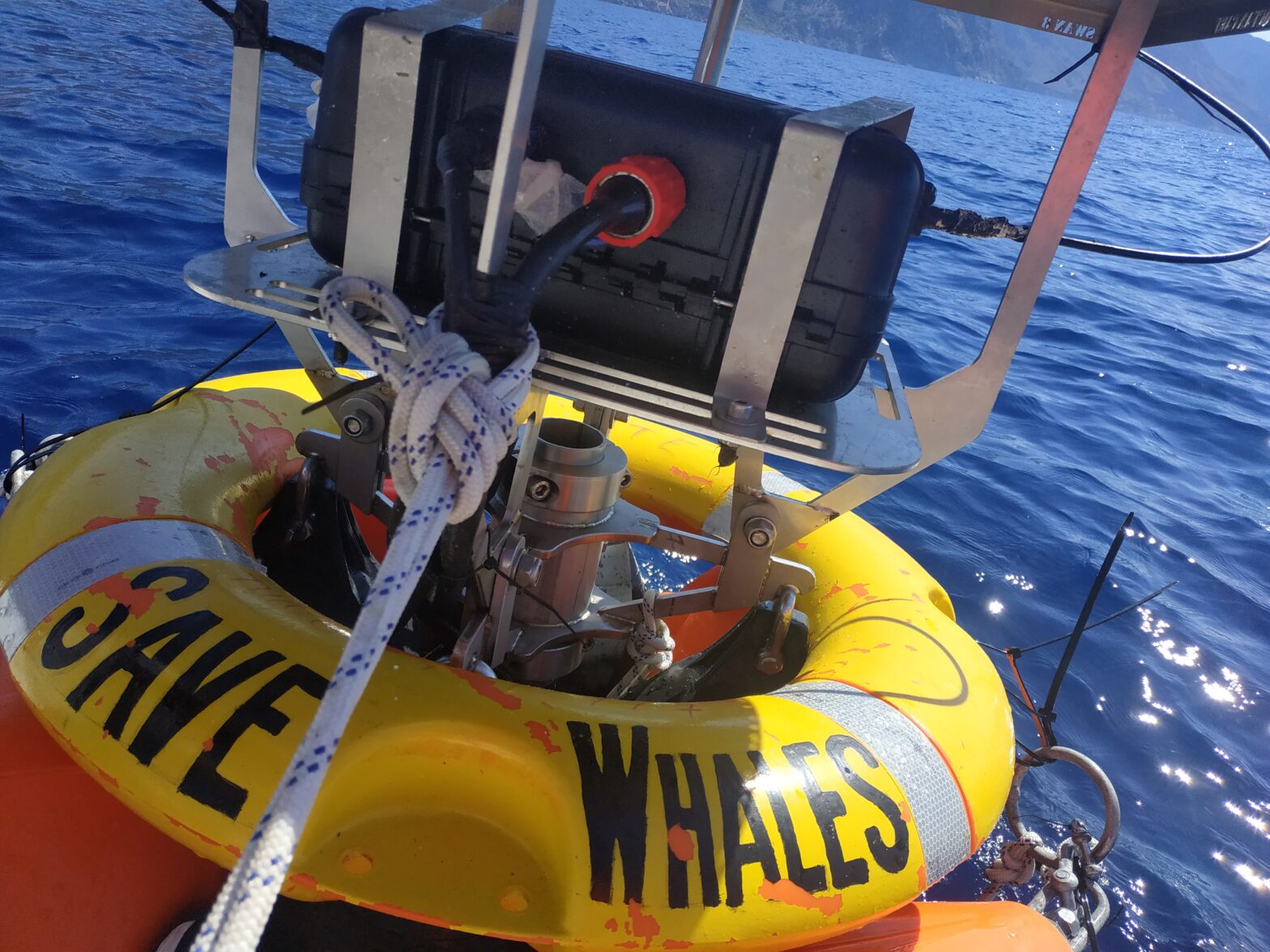SAvE Whales: Successful high-tech project to protect sperm whales
In collaboration with leading scientists OceanCare commissioned the development of the world’s first integrated acoustic observatory to locate sperm whales in real-time and inform ship captains so they can avoid a collision. The system was developed and successfully tested off Crete.
In many marine regions, whales are threatened by being hit by ships. Often, it is possible to prevent ship strikes by simply by relocating shipping lanes and therefore avoiding bypassing the whales’ habitats. But sometimes re-routing is not possible, for example in narrow straits or when bypassing is not justifiable for geographical, ecological and economic reasons.
When re-routing is not an option and shipping lanes cross important whale habitat, technical solutions could help warning ship captains to slow down and/or change course. To prevent sperm whales in the Eastern Mediterranean from extinction OceanCare funded the pilot project «SAvE Whales» (System for the Avoidance of ship strikes with Endangered Whales).
High-Tech buoys with hydrophones
Lead by the greek sperm whale expert, Dr. Alexandros Frantzis, from the Pelagos Cetacean Research Institute (PCRI) in close collaboration with Dr. Emmanuel Skarsoulis, from the Foundation for Research and Technology Hellas (FORTH) and other partners the pilot project was carried out between 2019 and 2021.
SAvE Whales is a milestone to secure a future for sperm whales in the Mediterranean. The system uses solar-powered high-tech buoys equipped with hydrophones that record the clicking sounds of the sperm whales, process them and send filtered data to a land-based analysis centre where computer models are used to detect, precisely localize the animals, and finally forward the localization fixes to nearby ships, all in real time. Specifically developed software combines localization results with shipping information from Marine Traffic, a leading ship tracking service provider, to assess collision risk. If a vessel is on a collision course with a whale, its captain can be warned well in advance, such that the ship slows down and/or changes course in time to avoid the whale(s).
Following its development, the system was successfully tested in two field seasons in the summers of 2020 and 2021 off the south coast of Crete, a high-risk area for ship collisions. It proved to be effective and the precision with which «SAvE Whales» locates sperm whales is unique in the world.
The data and results were published in the scientific magazine Frontiers.
Field test successful – now it’s a matter of implementation
Now, OceanCare offers the system to be used by the Greek government and become implemented as official mitigation measure in high-risk areas for collisions where re-routing is not possible. But the new system is not only intended for being used in greek waters, but wherever it is necessary to protect toothed whales, in particular sperm whales, from being hit by ships.
By reducing speed, relocating routes and the «SAvE Whales» system, a successful mix of measures is now available for the protection of these endangered marine mammals.

